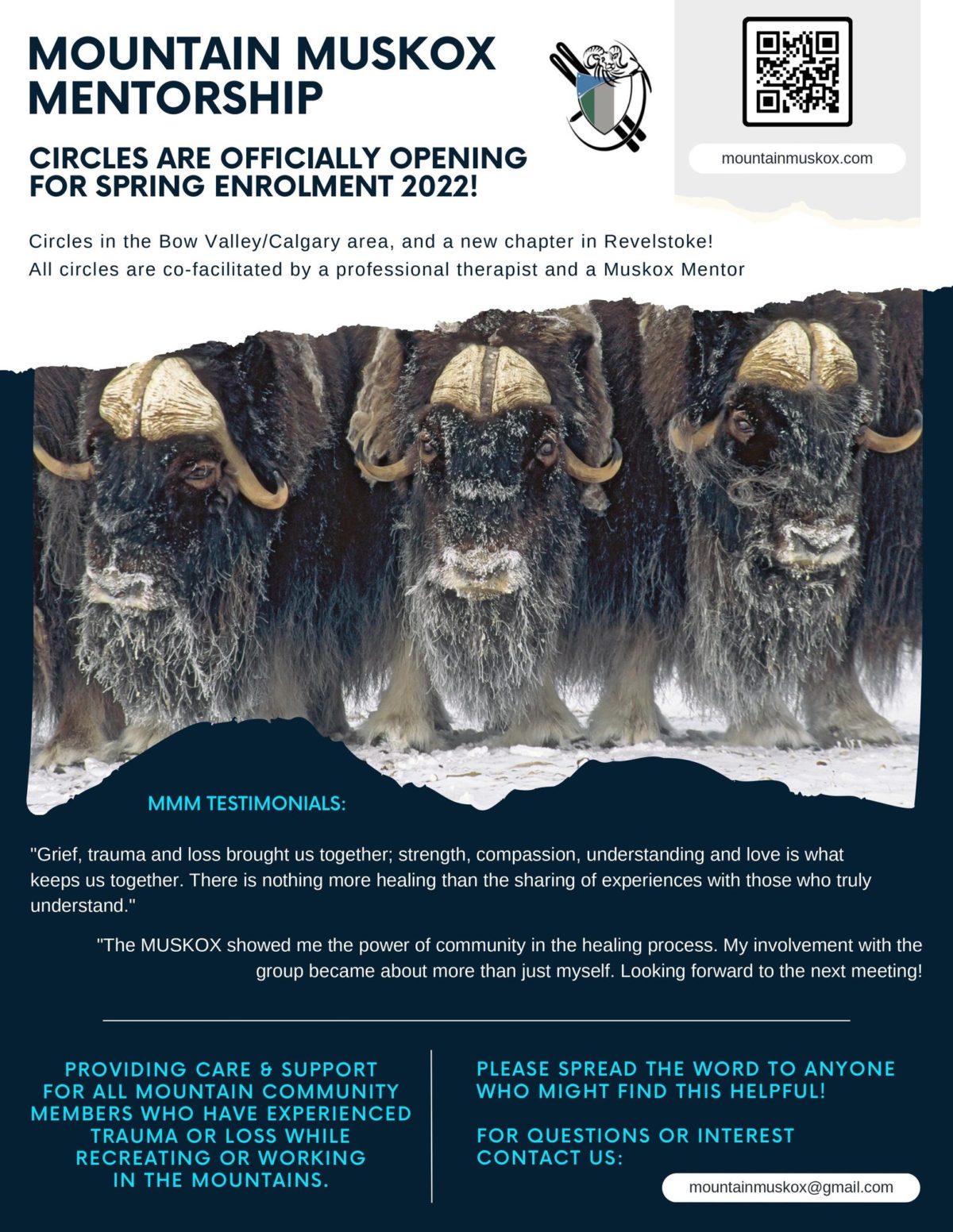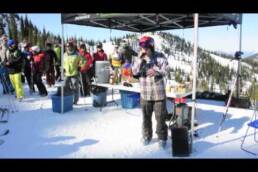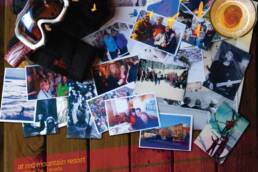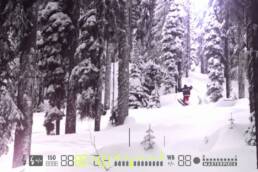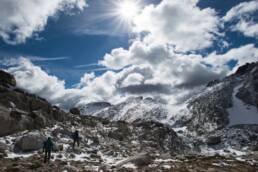Mountain Muskox is a new group-therapy program offering hope for survivors of alpine trauma.
Survivors of a size-three avalanche should feel lucky. But for Adam Campbell and Kevin Hjertaas, emerging unscathed from a January 2020 slide kicked off a nightmare. The two were skiing in Banff National Park when an avalanche swallowed the third member of their group, Campbell’s wife, Laura Kosakoski. It took them an hour to dig her out of the debris; she died the next day.
After the accident, Hjertaas, who is a ski guide but wasn’t guiding that day, says he sunk into depression. Campbell was so low he considered suicide. Their story is not unique, except for what happened next: they were invited to take part in a new group-therapy program for survivors of mountain trauma, such as witnessing an injurious fall, responding to a crash, or experiencing a fatal avalanche.
“Counselling is an essential part of the recovery from big incidents,” says Janet McLeod, a registered psychologist. “But individual counselling has its limits.” Treating accident survivors at her Mountain Therapy clinic in Canmore, Alberta, McLeod noticed that shame led many to push away the people they needed most. She wondered if group counselling could help and facilitated a session for four clients. It went well. After the avalanche accident, they invited Hjertaas to join them.
Hearing the others share similar emotions to his own, Hjertaas stopped feeling so alone. “When people you respect understand what you’re going through, it’s more impactful,” he says. “You see they’ve experienced something similar and are doing better. I needed that hope.” The group formalized their sessions into Mountain Muskox, named for the way the Arctic bovines circle together to support and protect each other when they are threatened. With sponsorship from the Alpine Club of Canada, Arc’teryx, and the Association of Canadian Mountain Guides, a 12-session curriculum was developed. The pilot ran last year and included Campbell. He and Hjertaas say the process helped them heal, and McLeod deemed it a success. Some of the participants now want to train as facilitators so they can run more sessions and export the program to other mountain towns. McLeod says, “Watching these people who are so used to being strong and independent be vulnerable with each other is really powerful.”
Related Stories
Insane Mountain Beat Boxin’
We don't know who this guy is, or where he came from. He showed up at the Kootenay Coldsmoke PowderKeg Slopestyle last…
The Gathering at Red Mountain
This upcoming Easter weekend RED and POWDER Magazine are presenting the 2nd annual Gathering at RED. Come hang with…
The Gathering Returns to Red Mountain
Presented by Salomon, the Gathering at Red Mountain, an event of mountain photographers, filmmakers, and artists is…
Framed in Leavenworth With Coast Mountain Culture
This past weekend, CMC was on hand to sponsor and participate in Leavenworth's Framed Photographer Invitational, where…
Coast Mountain Culture Launches Premiere Issue
You may have seen a copy of the new Coast Mountain Culture Magazine (CMC) floating through outdoor veins throughout…



